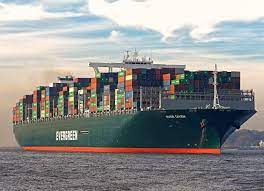
Vortexa Insight on Suez Canal blockage
The Suez Canal blockage is a serious situation and having implications for a significant number of individual players already, with 36 oil tankers of MR size or bigger already delayed, or at the risk of being delayed imminently. If the issue is not solved today it will start to have implications on the bigger trade flow and shipping sectors. If it is not solved by the coming spring tide (27/28 March) it will begin to affect refining operations on a broader scale.
We want to single out four main flows that are affected:
1) Crude northbound:
– Middle Eastern sour crude flows to Europe that can partly make use of Sumed and potentially also Israeli pipeline
2) Crude southbound:
– Lighter and sweeter crudes from the Caspian and North Africa, partly also the US, that go to Asian destinations
3) Products northbound:
– Middle distillates (diesel and jet fuel) and biodiesel that are destined for the European market
– Gasoline/blending components targeted for the US
4) Products southbound:
– Naphtha, especially from Russia, is a key source of supply for Asian petchem players
– Fuel oil, frequently from ARA hub and/or Russia, for bunkering in Singapore/East of Suez as well as for further processing in Asia
– US LPG and ethane exports to Asia, the latter especially to India
Refining Implications
If the delays are contained within a few days, only a few individual players will be affected – with storage tanks helping to balance issues. But the longer the blockade persists, the more the shortage of sour crude in Europe and light-sweet crudes in Asia will be felt.
Volume-wise the total flow of crude transiting northbound vs southbound nearly balances out. Some of the light-sweet crudes from the Black Sea and Mediterranean could be redirected to European refiners (due to proximity), while it is less likely that the Middle Eastern grades stuck south of the Suez Canal redirect to Asia due to Middle East crude’s destination restrictions.
This means that crude supply by volume could be less affected in Europe than in Asia, with price support for Urals type of crude in Europe and light-sweets in Asia.
As for products, the most relevant impact is probably on supplies of middle distillates to Europe, providing perhaps a bit of support for the ailing pillar of the European refining industry. But also the missing gasoline blending components could turn into a minor support for Atlantic Basin gasoline valuations.
On the Asian side it is questionable whether the missing fuel oil, naphtha and other light ends really have an industry-wide implication, but the longer the delay goes, the more upside there is for the respective product valuations. This could be outbalanced by growing pressure on the regional middle distillate market that already sees record volumes in transit. The potential result could be VLCC bookings to Europe around the Cape of Good Hope.
Information Source: Read More: ..Freight market implications–>
Press release by: Vortexa Market Research Team
Get full access to the physical oil & gas trading market today



